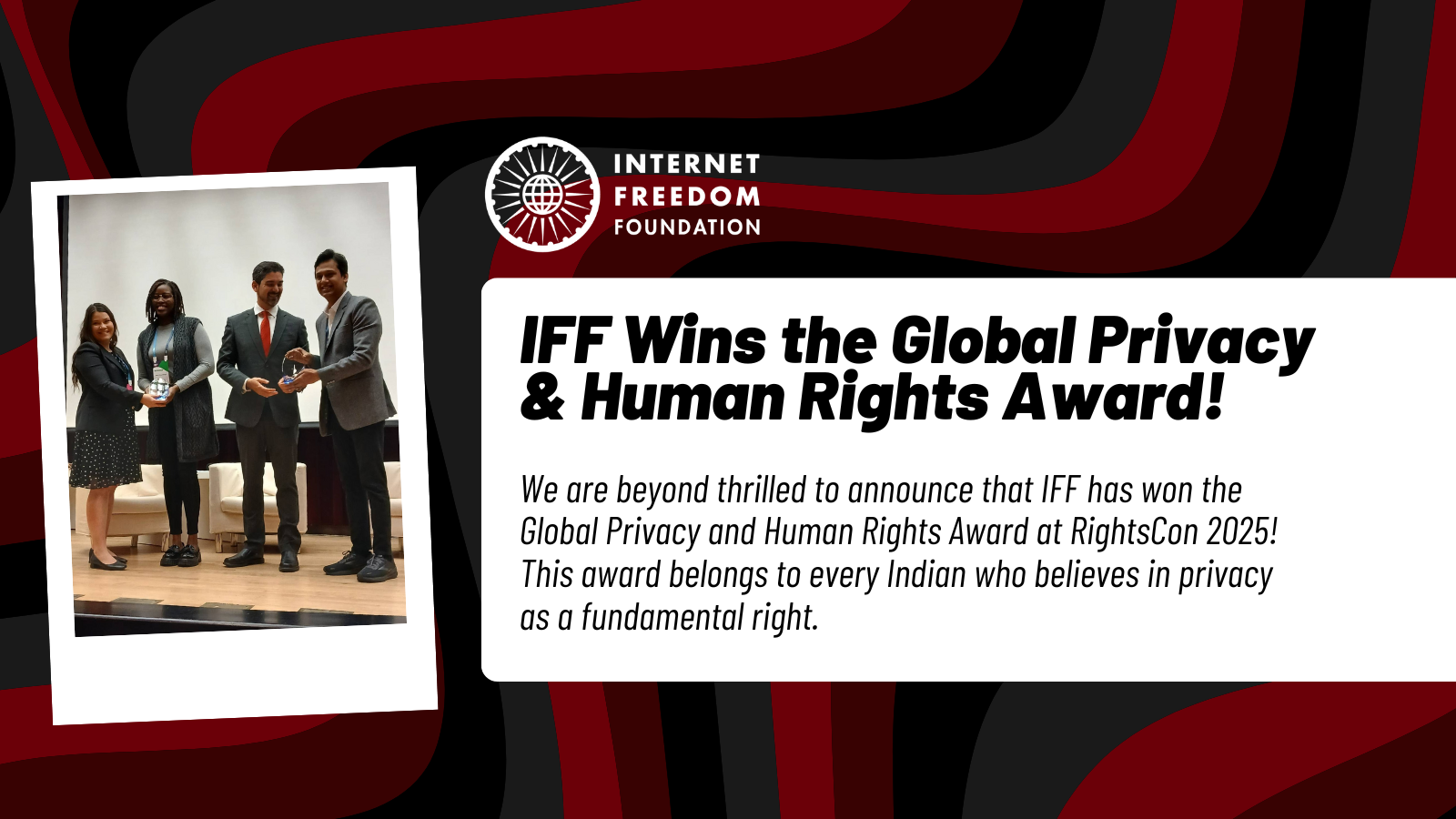
Statement on IFF receiving the First Global Privacy and Human Rights Award at RightsCon 2025
Let me begin by thanking the Global Privacy Assembly and Access Now for awarding IFF the Global Privacy and Human Rights Award. I accept it on behalf of every Indian who believes in the fundamental power of privacy. To us, this award is testament to a collective and continuing struggle that doesn’t merely begin on July 22, 2015 when the Attorney General of India stood up in the Supreme Court to challenge the status of a fundamental right to allow the continued expansion of the Aadhaar national biometric programme. Its seeds go back much further, even predating Warren and Brandeis. In the roots of our independence struggle that overthrew colonial rule to adopt a transformative constitution. A constitution that recognises the inherent capacity of human beings to achieve their full potential with liberty, equality, fraternity and social justice.
I stand here to acknowledge not just IFF’s role, but a large, sometimes even small, a loose, loud, diverse collective of movements, organisations, activists, academics, scholars, journalists, organizers, lawyers, judges — even the small but formidable community of techies — who continually fortify the privacy doctrine. From safeguards against midnight knocks on the door by the police acting without warrants to documenting and organising welfare beneficiaries whose dignity is placed at a bargain for receipts of their entitlements. Imagine being at the mercy of the authentication of a biometric system not only to board a flight but to get your monthly quota of rice and cooking oil. In India—and, let’s be honest, across much of the global South—privacy isn’t just an abstraction about “personal space.” It’s the difference between living a life with dignity versus constantly pleading for permission. Here, the digital leash tightens based on who you are, what do you look like, how do you pray, what do you wear, who do you marry, what do you eat — who do you text, what do you stream, what do you browse — sometimes what is the print of your thumb. Here, the coercive powers of technology are increasingly being used to chain and trap us.
IFF’s role, along with coalitions and movements, has been to ensure that privacy is not swept under theoretical jargon — like “surveillance capitalism” or “digital authoritarianism” — but is tangible, real and exists in the lives of the people. This means we fight for it through civic literacy, in courts and India’s legislative process. This does not guarantee a progressive path to victory. It is a course charted with setbacks and side steps. However, we will not waver from the constitutional path. When the Indian Supreme Court declared privacy a fundamental right, it was supposed to trigger a workable data-protection law. Multiple drafts and public consultations later, we still don’t have the robust framework we were promised. Instead, we got a Digital Personal Data Protection Act that centralizes executive authority and expands the surveillance net. Even more, it threatens the right to information, social workers, researchers and journalists — those who, ironically, should be shedding light on abuses of power often to safeguard the working classes. We at IFF view the GPA award not as an accolade for our past work but encouragement for the fights that need to be fought for the right to privacy. A fight that is led by, fought alongside the gig workers, the manual labourers and farmers in India who are subject to digital systems that violate their constitutional rights.
Jai Samvidhan, Jai Hind
Apar Gupta,
Advocate & Founder Director
IFF has won this award and shares this citation with 5RightsFoundation
